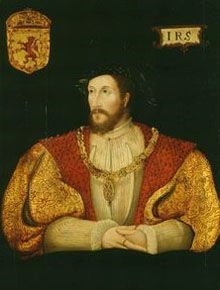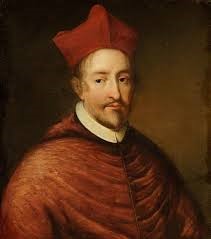Marie of Guise: Life Story
Chapter 3 : Marriage Negotiations (1537)
1537 was a year of bad news for Marie. She heard in July that her friend, Madeleine, Queen of Scots, had died. Her first reaction is likely to have been sorrow, followed by dismay when she heard that James, still without a legitimate heir, was looking for a replacement bride, preferably of equal prestige to Madeleine. King Francois had other plans for his daughter Marguerite (who became Duchess of Savoy), and decided that Marie would make a suitable Queen of Scots. Marie did not want to leave her home and her son and initially refused. Francois pressed her and James wrote pleading his suit personally.

If Marie really did not want to be Queen of Scots, an alternative was soon available. Henry VIII of England, widowed by the death of his third wife Jane Seymour in childbed, was in the market for a fourth. He was eager for a match with either France or the Empire to re-establish himself as a member of the European royal circle after the rift caused by his casting-off of the Emperor’s aunt.
Henry was also happy to disrupt any plans James V might have and seized the idea that Marie might be just the wife for him - a widowed mother of sons, who was good looking, and exceptionally tall, seemed ideal.
Marie resisted this idea even more strenuously, apparently saying that although she was tall, her neck was very small. Suddenly, marriage to James looked more appealing. Her father again showed reluctance to provide the dowry expected – the Scots were demanding some 150,000 livres, and initially, Claud suggested that it should be paid from the Longueville estates. This would have defrauded her son, Francois, of part of his inheritance and Marie refused. Eventually, King Francois offered 70,000 livres and gouged the remainder from Claud.

The marriage contract was drawn up by Cardinal David Beaton acting for James, and Marie’s father. In return for the dowry, Marie's grant as Queen of Scots was the palace of Falkland; Stirling, Dingwall and Threave castles; the revenues of the Earldoms of Orkney, Fife, Strathearn and Ross, and the lordships of Galloway, Ardmeneach and The Isles.
In the event of James pre-deceasing her, if they had children, she would have one third of the amount of her dowry, or half if there were no children. Marie was also indemnified against responsibility for any of his debts. She would be able to retain this dower, even if she returned to France.




